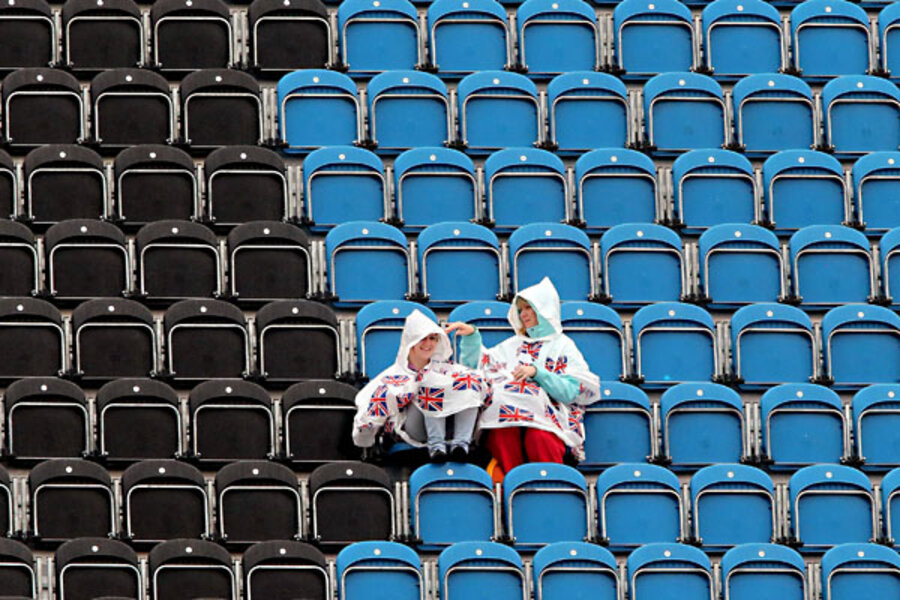Empty seats at the Olympics: Bad price control to blame?
Loading...
The British Olympic organizers restricted ticket purchases, rewarded corporate purchases but not corporate use, imposed price controls on tickets available to the public and state violence against the resulting scalpers (touts) — and are distraught and surprised over the empty seats that characterize so many of the Olympic events so far. To reduce the embarrassment and sense of scandal, organizers have carted in British troops–dressed in their camo!–to fill seats at gymnastics events, while other easily manipulated, low-time-cost groups on the government’s payroll are also being bussed in to other sparsely-attended venues.
Meanwhile, many thousands willing to pay market prices to attend Olympic events are told to bugger off.
The Olympics are essentially mercantile events in which planning takes place outside of market forces so as to achieve outcomes preferred not by consumers but by states. (Peter Hitchens argues here that this trend started with the 1936 Olympics in Berlin when Hitler and Goebbels transformed them into “grandiose and torch-lit” spectacles.) Regardless, the events in London are demonstrating once again what an LSE economist in the 1930s said about economics–that its “curious task” was “to demonstrate to men how little they know about what they imagine they can design.” Why did Sebastian Coe and his team think they could effect a better outcome than what would result from the price system? These are practical men, but even Keynes might admit that they are probably slaves of some defunct and incorrect economist.
RELATED: 2012 London Olympics quiz: Are you ready for a gold medal?





